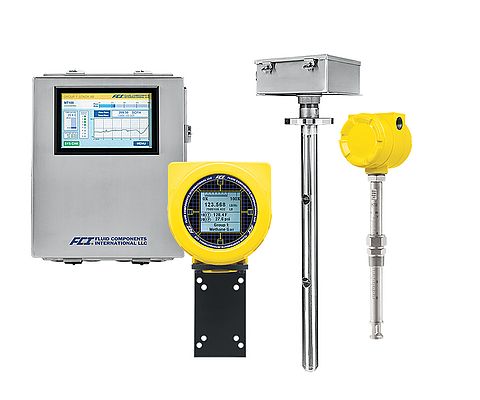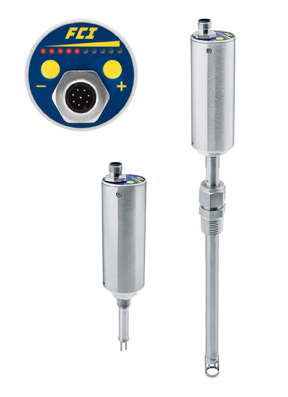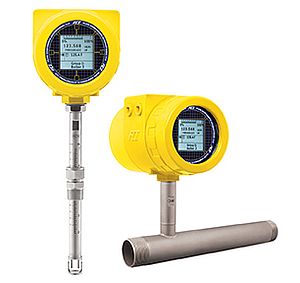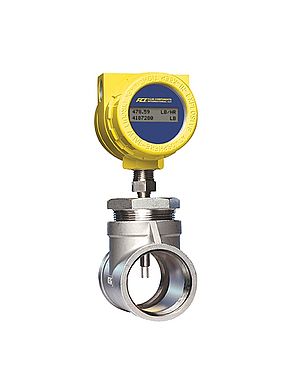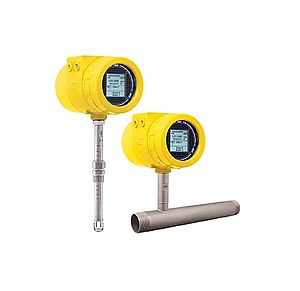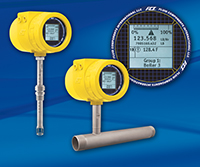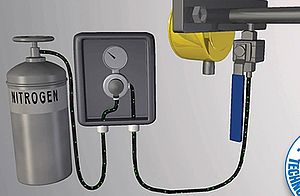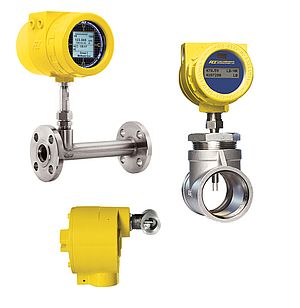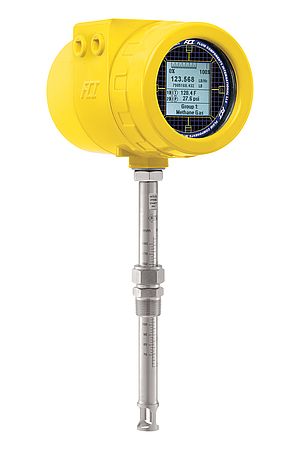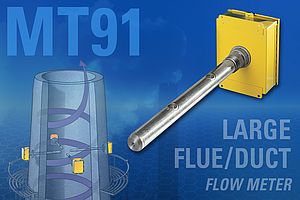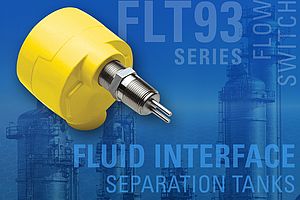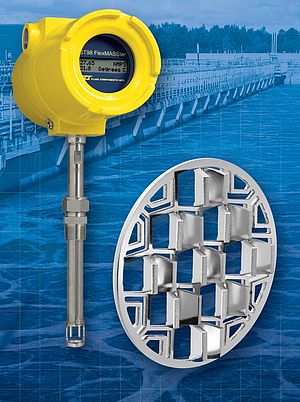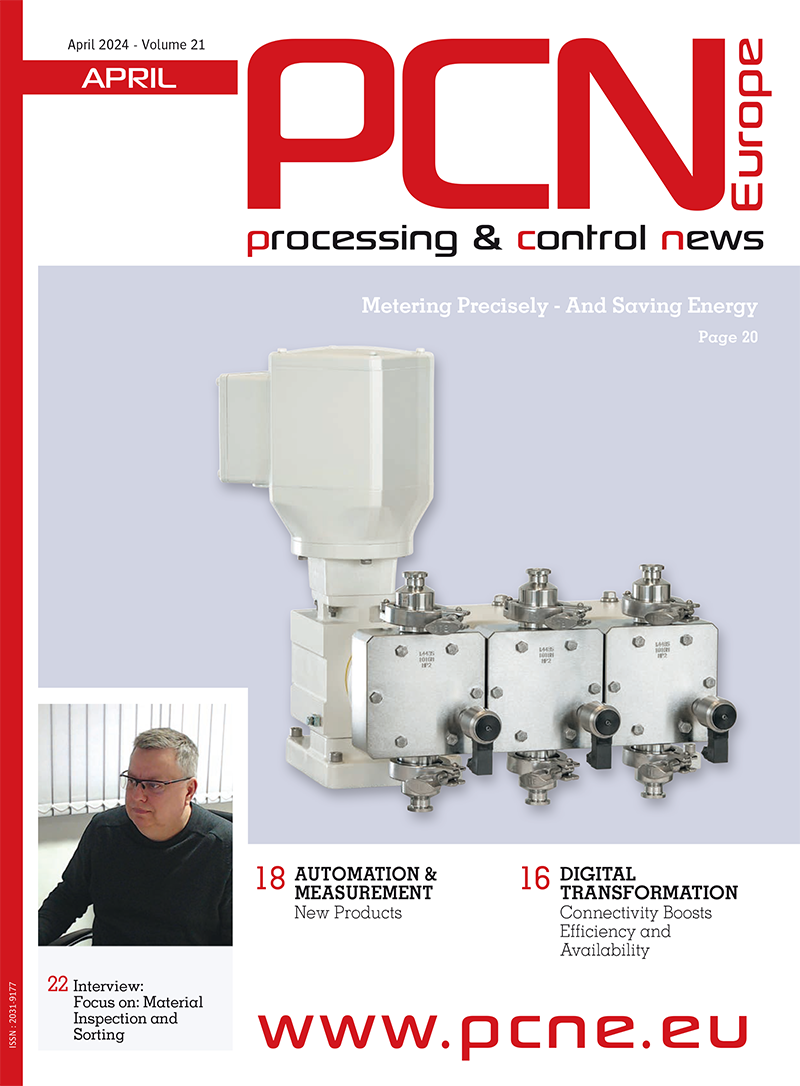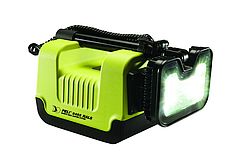FCI’s advanced multipoint air/gas thermal flow meters combine electronics technology with application-matched, precision flow sensors and calibration in a rugged package designed for the most demanding plant operating environments. They are also always dual-function, providing both flow rate and temperature of the process.
The model ST102A Flow Meter and the new MT100 Series Flow Meters from Fluid Components International (FCI) provide two to eight non-clogging, no moving parts sensing points that ensure superior accuracy repeatability and reliable operation. They have been designed specifically for flow measurement in round pipes or stacks of 12 inches [300 mm] and larger diameter, and square or rectangular ducts with cross sectional area of 100 inches [250mm] and larger.
Precision Flow Sensor
The multiple FCI thermal dispersion sensors are inserted at various depths within a pipe or duct and their outputs are multiplexed and averaged to produce the flow rate within the process line. Where dual point sensing is sufficient, the ST102A Flow Meter is the ideal solution. In more complex applications such as larger exhaust stacks, the MT100 Series Flow Meter provides up to eight sensors.
Both flow meters are easily installed in a simple insertion tap. In large stacks with platforms, they install in single plane resulting in significant savings in installation costs and maintenance access. These flow meters are direct mass flow measuring, they operate over a wide 100:1 turndown and are compatible in processes operating at up to 850 °F (454 °C). They have no orifices to clog, and they provide a superior solution in flow streams with moisture, dirty particulates or corrosive aspects.


